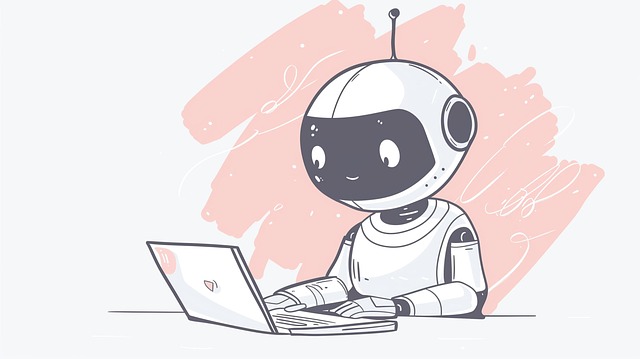AI chatbots, powered by advanced NLP and machine learning, simulate human conversation through text or voice interactions. Utilizing pre-written scripts and vast databases, they provide instant support and personalized experiences across various industries, from customer service to sales and marketing. These versatile tools offer 24/7 accessibility globally, reducing response times and costs while enhancing user experiences and freeing up human agents for complex issues.
In today’s digital landscape, AI chatbots are transforming how we interact with technology. This article delves into the intricacies of these intelligent assistants, providing a comprehensive guide to understanding AI chatbots and their vast potential. From basic functionality to sophisticated applications, we explore how scripted chatbots leverage advanced algorithms to enhance user experiences across various sectors. Discover the benefits, use cases, and future prospects of AI chatbots that are revolutionizing communication and service delivery.
- Understanding AI Chatbots: The Basics
- How Scripted Chatbots Work
- Benefits and Applications of AI Chatbots
Understanding AI Chatbots: The Basics

AI chatbots are a type of artificial intelligence (AI) software designed to simulate human conversation through text or voice-based interactions. They use advanced natural language processing (NLP) and machine learning algorithms to understand and respond to user queries in a conversational manner. At their core, these chatbots operate based on pre-written scripts that dictate the flow of conversations, allowing them to provide relevant and consistent information.
When you interact with an AI chatbot, it analyzes your input, identifies keywords or topics, and draws from its vast database to generate appropriate responses. This technology has revolutionized customer service by offering instant support and personalized experiences. Whether through live chat on websites, messaging apps, or voice assistants, AI chatbots are becoming increasingly prevalent, making daily tasks easier and more efficient for users across various industries.
How Scripted Chatbots Work

Scripted chatbots are powered by artificial intelligence (AI) and operate through a series of predefined scripts and responses. These chatbots are designed to simulate human-like conversations, but their interactions are guided by a set of rules and algorithms. When an user sends a message to an AI chatbot, it analyzes the text using natural language processing (NLP) techniques. Based on the analysis, the chatbot selects a relevant response from its pre-programmed database or generates a new one if required.
The underlying technology behind scripted chatbots ensures they provide consistent and accurate responses across various user queries. They can handle simple to complex conversations, depending on their programming. For instance, an ochatbot may be programmed to answer frequently asked questions (FAQs), guide users through a process, or even engage in casual small talk. This versatility makes AI chatbots valuable tools for customer service, sales, marketing, and personal assistance applications.
Benefits and Applications of AI Chatbots

AI chatbots have revolutionized the way businesses interact with their customers, offering a range of benefits that traditional customer service methods can’t match. One of the key advantages is their accessibility; AI chatbots are available 24/7, providing immediate assistance to users worldwide without the need for human agents. This not only improves customer satisfaction but also reduces response times, allowing businesses to handle high volumes of queries efficiently.
Additionally, these chatbots enhance user experiences by offering personalized interactions. Leveraging machine learning algorithms, AI chatbots can adapt to individual user preferences and behaviors, providing tailored recommendations and solutions. From simple question-answering to complex task automation, AI chatbots are versatile tools that can be integrated into various industries. They streamline processes, reduce operational costs, and free up human agents to focus on more complex issues, fostering a more productive and effective customer service ecosystem.
AI chatbots have transformed the way we interact with technology, offering a range of benefits from improved customer service to enhanced user experiences. As we’ve explored, scripted chatbots leverage sophisticated algorithms and pre-written responses to engage in natural language conversations, making them versatile tools for various industries. Moving forward, the potential of AI chatbots to revolutionize communication and automation is undeniable, paving the way for even more innovative applications in the future.
